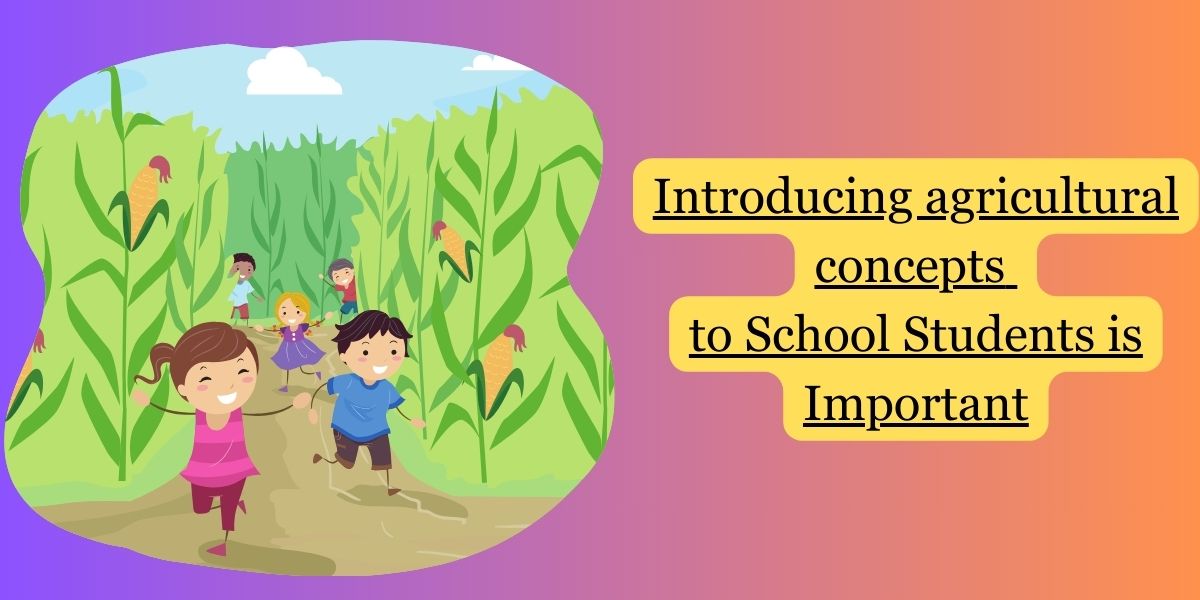Introducing agricultural concepts to school students is important for several reasons, as it provides numerous educational, developmental, and societal benefits. Here are some key reasons why it’s beneficial to teach kids about agriculture:
1. Understanding the Source of Food:
- Learning about agriculture helps children understand where their food comes from. It connects them to the processes involved in growing, harvesting, and producing the food they eat, fostering a sense of appreciation for the efforts of farmers.
2. Environmental Awareness:
- Agricultural education introduces kids to the importance of sustainable and responsible farming practices. It helps them develop an awareness of environmental issues, such as soil health, water conservation, and biodiversity.
3. Life Cycle Understanding:
- Kids can learn about the life cycles of plants and animals through agricultural education. Understanding the growth process of crops, the breeding of livestock, and the interconnectedness of ecosystems contributes to their overall knowledge of biology and ecology.
4. Hands-On Learning:
- Many agricultural concepts involve hands-on learning experiences, such as planting seeds, caring for plants, and observing animal behavior. These activities enhance kinesthetic learning and help kids develop practical skills.
5. Nutrition and Healthy Eating:
- Agricultural education provides insights into the nutritional value of different foods. Kids can learn about the variety of fruits, vegetables, and grains and the role these foods play in maintaining a healthy diet.
6. STEM Education:
- Agriculture involves various STEM (Science, Technology, Engineering, and Mathematics) concepts. Teaching kids about agriculture provides practical applications for these subjects, encouraging their interest and participation in STEM-related fields.
7. Cultural and Historical Understanding:
- Agriculture is deeply intertwined with cultural practices and historical developments. Teaching kids about agriculture allows them to explore the cultural significance of farming practices and the historical evolution of agriculture.
8. Empathy and Responsibility:
- Caring for plants and animals fosters a sense of empathy and responsibility in kids. They learn about the needs of living organisms and the impact of human actions on the environment.
9. Economic Awareness:
- Agriculture is a significant economic sector. Introducing kids to agricultural concepts helps them understand the economic aspects of farming, the importance of rural communities, and the global interconnectedness of food production.


No responses yet